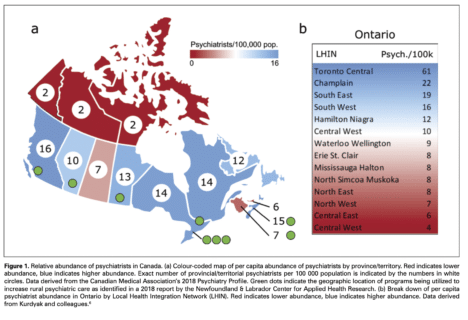Who do you influence? And is that influence one you’re proud of?
I just finished a study that discussed your circle of influence. There’s those closest to you, friends and family, your co-workers and finally acquaintances. Ultimately, every person we encounter is influenced by meeting us in at least a small way.
May is Mental Health Awareness Month—a subject that has been treated with kid gloves for far too long. The truth is agriculture is not immune: mental health matters and the discussion needs to come to the forefront.
According to a recent study, people in rural areas in the more developed countries (U.S., Canada) are 1.4 times more likely to die by suicide than their urban counterparts. In rural Canada specifically, 45 per cent of farmers reported high stress levels, 58 per cent anxiety and 35 per cent depression in a study by the University of Guelph.
While we can’t pinpoint the exact cause, lack of access to mental health resources certainly doesn’t help.
In fact, the Rural Health Information Hub (RHIH formerly the Rural Assistance Center), reports there are six common barriers to entry when it comes to accessing mental health resources:
-
- The stigma. This can cause people who need to reach out for help to avoid doing so because of perceived shame or embarrassment. It’s a societal issue that, while improving, still acts as a barrier.
- Lack of anonymity. Privacy is challenging in a small town—even more so if a friend or acquaintance is the mental health professional. This, combined with the stigma around mental health, can discourage individuals from seeking help.
- Shortage of mental health professionals. According to RHIH, shortages are especially taxing on rural communities and their residents can be put on long waitlists before seeing a professional.
- Lack of culturally-competent care. Anyone who is a minority has a severe lack of access to not only mental health care, but even less access to care that understands racial or ethnic challenges they might face.
- Care isn’t affordable. Many insurance companies don’t cover all mental health services, which means it’s often too expensive for patients to pay out-of-pocket.
- Transportation issues. If an individual doesn’t have a reliable vehicle or access to public transportation, physically getting to an appointment isn’t always possible.

These barriers are troubling and it’s going to take the efforts of the masses to overcome them.
Be a mental health ally
I live in a rural community myself, right around 5,000 people total. We’re surrounded by corn and soybean fields and about 45-minutes from the nearest large city. Jobs can be scarce. We went from droughty conditions to 10 days in a row of rain (preventing planting for a while) and numerous other challenges our urban counterparts don’t consider. There are no mental health professionals in our town, although there are online options.
My goal is to be more supportive in my local community by taking those six barriers into consideration when talking with people. In addition, there are several resources for mental health advocates to use.
Here is a group of resources from RHIH.
Canada’s Do More Ag also provides resources here.
How can we all be allies for mental health? Can we be encouragers? Can we reduce the stigma? What’s your role?









